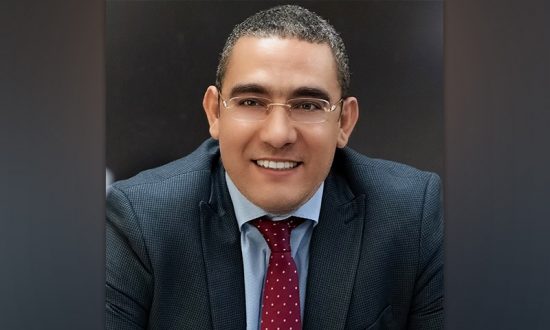Dr Samy is the Executive Director of Strategy & Future at the Higher Colleges of Technology and a member of two national agenda executive teams overseeing international accreditation and graduation rates of the Higher Education sector in the UAE. He has served four consecutive years on the National Board of Directors of the Association for Strategic Planning in the USA and was their elected Vice President.
The Higher Colleges of Technology, a brand that carries pride and revolves on creating everlasting impact. An organization that has groomed tens of thousands of Emirati professionals that have been and continue to be shapers of the past, present, and future of our beloved United Arab Emirates. Over the past five years, HCT had reimagined and transformed itself twice to become the great organization it is today, building on a strong legacy of achievements since its inception, yet known for its forward-looking vision and future proof outlook.
In 1985, H.E. Sheikh Nahayan Mabarak Al Nahayan, Minister of Tolerance and Coexistence and the founding Chancellor of HCT committed to establishing a new national system post-secondary education aiming at educating nationals for the professional and technical careers necessary in a rapidly developing society. In fulfilment of this vision, HCT was established in 1988 as the first applied higher education provider in the UAE. It is now the largest higher education institution, having a well-respected reputation for innovative and applied workplace relevant education. More than 20,000 students attend HCT’s 16 modern, technology-enhanced men’s and women’s campuses in Abu Dhabi, Al Ain, Dubai, Fujairah, Madinat Zayed, Ras Al Khaimah, Ruwais, and Sharjah. Over 85,500 academic credentials were awarded to over 61,000 graduates since 1991.
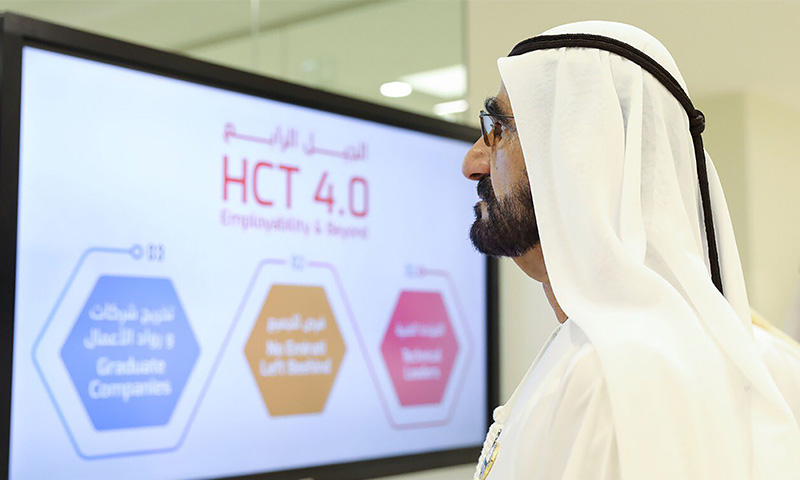
In the spring of 2015, HCT established new leadership. Dr Abdullatif Al Shamsi was appointed as the Vice-Chancellor. He is currently the President & CEO of HCT. The year when HCT started its first transformation journey to establish its new generation known as HCT 2.0. A vision that came along with the new leadership to position HCT as the leading applied higher education institution in empowering generations to contribute to shaping the UAE’s future. A vision that redefined HCT’s identity and refocused the colleges on their original mandate to introduce sustained societal and economic relevance. Graduate employability became the ultimate strategic outcome for HCT. That constituted a commitment from HCT to its students that each would be awarded an academic credential and availed a job offer by graduation. Both HCT 2.0 vision and its commitment to our students and the wider community had to be translated into strategic initiatives and performance measures establishing the first five-year (2017-2021) strategic plan for HCT with a change agenda addressing four priority areas: graduate employability, student success, innovative learning, and academic excellence.
This second generation of HCT launched 25 strategic initiatives, most of which have now become mainstream operations. It all started by creating a shared identity redefining what HCT is all about. We are not comprehensive, we are not into fundamental research, and we are not in the business of just transferring knowledge. We care about our students’ wellbeing and that of our local communities; we are in the place of delivering applied skills-based education; we are about solving real-world problems through applied research and innovation. This critical first step of establishing a shared, inclusive identity was vital in defining our new business model, the value proposition to all our beneficiaries, corporate-like governance reinforcing agile decision-making at all fronts, and a full organizational restructuring to build on synergies and introduce operational efficiencies.
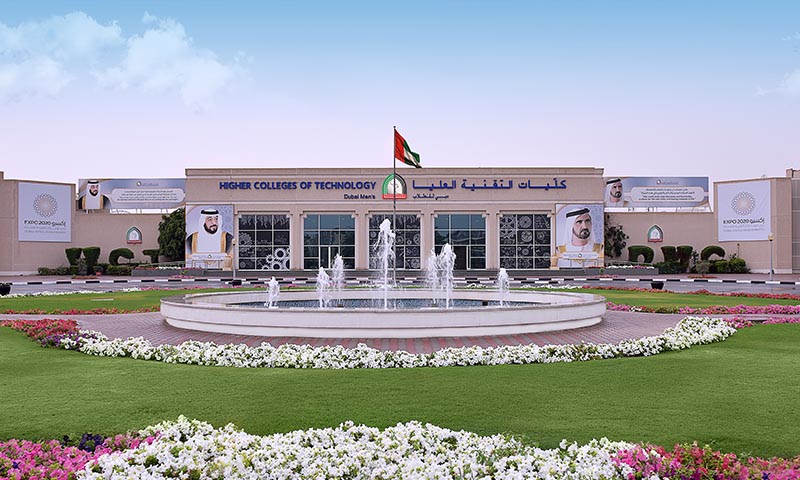
Fast forward to late 2018, H.E. Nasser Bin Thani Juma Al Hamli, Minister of Human Resources and Emiratization, was appointed the new Chancellor of HCT, reinforcing the economic and societal mandate of HCT and its contribution to the development of national human capital. Later in March 2019, H.H. Sheikh Mohamed Bin Rashid Al Maktoum, Vice President and Prime Minister of the UAE and Ruler of Dubai, visited our Fujairah Campus. His Highness announced HCT as the nation’s first approved university economic and creative free zone in line with article 6 of the Dubai 50-Year Charter that calls for all universities to establish themselves as such to graduate companies and support students to become entrepreneurs. HCT was ready for its second recreation with this economic and creative free zone announcement and newly established leadership. A pursuit that further developed HCT 2.0, where employability was the ultimate strategic outcome, gave birth to its fourth-generation HCT 4.0. While employability remains core, it goes beyond creating jobs through nurturing entrepreneurs and graduating companies.
As the fourth industrial revolution rapidly approaches, and previously stable jobs are replaced with a new range of employment, working Emirati professionals will need to be reskilled and up-skilled as Technical Leaders in existing and new employment sectors. The reskilling will ensure that Emiratis are at the forefront, in future-proof jobs, of all industries that are key to the growth and ongoing diversification of the country’s economy. This will not happen unless institutions, such as HCT, change the emphasis of education programs from imparting knowledge to developing skills and competencies; from teaching students to empowering learners to be co-creators of their lifelong development journeys; from a focus on public sector jobs to the private sector; from students relying solely on being employees to becoming entrepreneurs. A challenge that the future presents and HCT 4.0 is our defined response to that challenge so that No Emirati is Left Behind, as we boldly enter this new world.
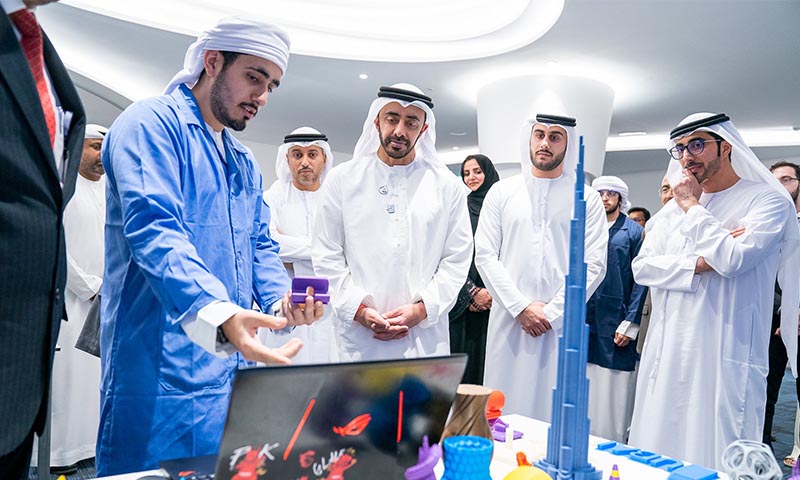
Here comes 2020, a year that brought tremendous challenges and, above all, a global pandemic that is affecting the entire human race. However, 2020 is a year of celebration for HCT. We celebrated our success stories developed and bolstered since the beginning of our transformation journey in 2015 with enormous institutional efforts and commitment to success accumulated over the years. We celebrated our successful transition to full online operations amid the COVID-19 pandemic and setting the stage for our newly adopted hybrid-in-space education model. Reflecting on the past few years and sharing five of our flagship stories of success to date.
Success Story #1: Our flagship Hybrid Education model –An Academic and a Professional Credential upon Graduation
HCT’s focus on graduate employability led to the development and deployment of its Hybrid Education model. A model that introduced a significant reform to all HCT program offerings to ensure sustainable alignment with industry requirements while maintaining academic rigour. A model that centres on student success through timely career counselling and academic advising while blending traditional and innovative teaching and learning methods throughout the curriculum, including specialization-related compulsory internship for all study programs. A model that recognizes industry and job-specific professional certifications by ensuring alignment with its bodies of knowledge that have been recognized by the industry for credibility and improved performance.
Today, HCT has partnered with 20 professional certifications and qualifications awarding bodies who endorsed 98% of HCT study programs in five disciplines for alignment with their qualifications’ bodies of knowledge. 52% of HCT’s entire graduate cohort of Academic Year 18/19 year were awarded a professional certification or qualification upon graduation. Our graduates employed by the private sector have more than doubled, with 90% of our graduates’ employers satisfied with HCT’s programs’ industry relevance.
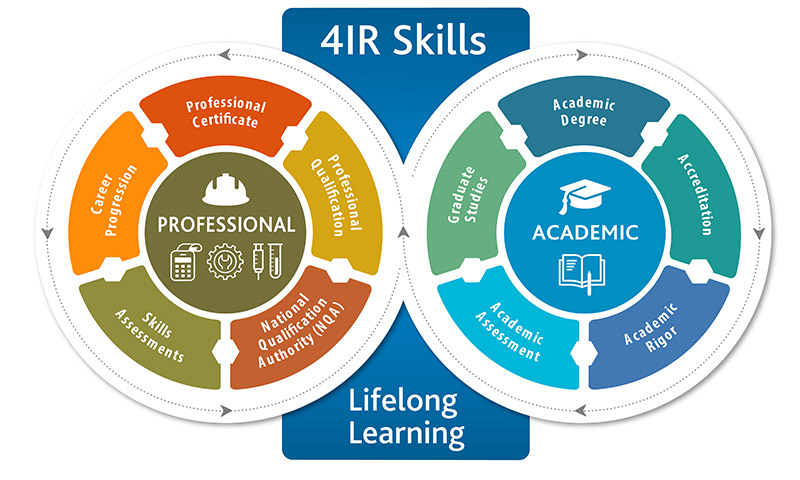
Success Story #2: InnCuVation Spaces – Innovate, Incubate, and Venture
The concept and vision for our InnCuVation Spaces were outlined back in early 2016 as one of HCT2.0 strategic initiatives aiming at nurturing students’ innovation and entrepreneurship with the outcome of graduating entrepreneurs and hi-tech startups to broaden HCT’s contribution to the UAE’s knowledge economy. The word InnCuVation is an amalgamation of the underlying concepts of innovation, incubation, and venture. All of which constitute the essence of these spaces that synergistically coexist to drive impact.
Three InnCuVation Spaces were inaugurated in Dubai, Ras Al Khaimah, and Sharjah campuses in March 2019, all fully equipped with the latest technologies and hi-tech equipment. These spaces were designed to provide a fully integrated ecosystem of distinctive areas, namely: design and media, programming and computing, intelligence augmentation, fabrication and prototyping, early-stage startup workspace. In addition to a dedicated industry partner area as an optimal landing spot for those partners willing to cooperate with our faculty and students.
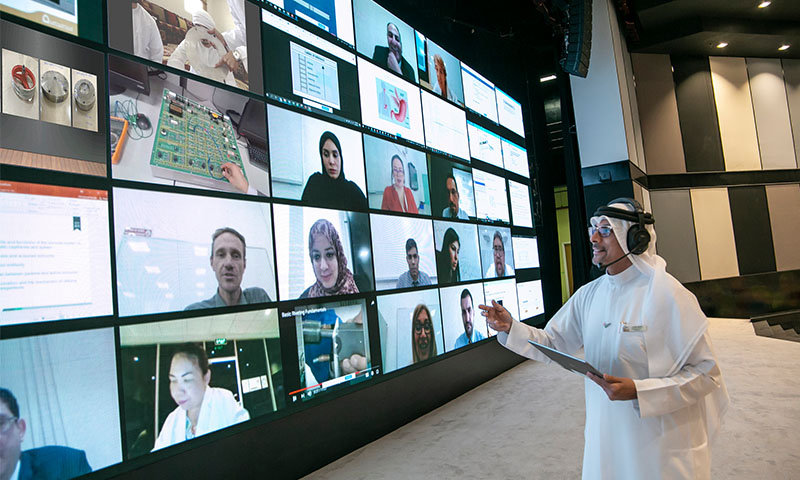
HCT, through the InnCuVation Spaces, has been instrumental and responsive to the demands of the continually changing needs of the community, not only of the education sector but also that of the healthcare industry. During the COVID-19 pandemic, and through the InnCuVation Spaces, HCT was able to develop and test 3D printed ventilator splitters in five hospitals in cooperation with various UAE healthcare authorities. Additionally, HCT managed to create a low-cost emergency mechanical ventilator to support the healthcare systems of low GDP countries that are heavily impacted by the pandemic. Both applied research projects stand to demonstrate HCT’s distinguished agile mindset with a focus and impact on the wellbeing of society.
HCT rolls out in its InnCuVation Spaces, a unique Startup Development Program with a massive support plan for students sparked startups. Annually, the program engages over 1,400 students, targeting more than 120 startup projects. The program offers entrepreneurship talks, hosting acclaimed successful entrepreneurs to share their stories and experiences. Along with these talks, the program provides around ten Inspire & Ideate sessions to further develop students’ abilities to create ideas and innovate solutions that can be launched through startup projects. These startup projects are then advanced through structured Startup Bootcamps addressing the strategy, market, and operational dimensions. Successful completion of the Bootcamp requirements qualifies startup projects to get a seat in one of two ten-week intensive Startup Accelerator programs designed to accelerate their growth and establish reliable business operations. To date, HCT’s flagship Startup Development Program, running at our InnCuVation Spaces, has facilitated the launch of 45 startups involving more than 170 students. Out of these, 14 have acquired a trade license, and 8 have commercial activities and full operational teams in place.
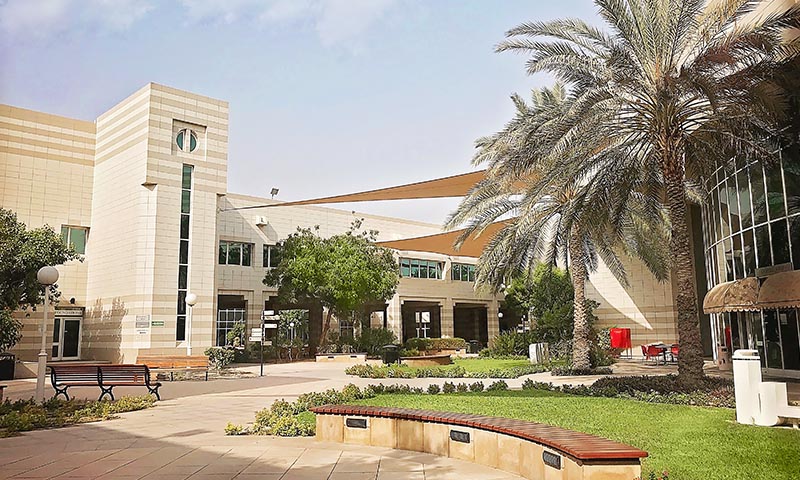
Success Story #3: The Global Applied Education Network – Creating the Next Practice in Applied Education
Inspired by the UAE’s transformational move towards developing its innovative knowledge economy, the Global Applied Education Network (GAEN), the first of its kind at such a global scale, came about as a strategic initiative in January 2018. The strategic aim is to establish a global platform for the global applied education sector to collaboratively address the workforce and employability challenges posed by the fourth industrial revolution. In addition, GAEN aims to exchange knowledge and expertise and advocate for applied education globally.
GAEN was established as a multilateral hub and spoke partnership model with peer-minded applied education institutions worldwide. The vision is to create a collaborative platform to boost collaboration among leading applied higher education institutions worldwide and give rise to an innovative workforce by offering internationally recognized joint degree programs. It seeks to develop innovative industry-partnerships in applied knowledge creation and production for a competitive knowledge economy. GAEN reinforces drivers for academic excellence, innovative learning, student success, graduate employability, and internationalization. It also creates exchange opportunities for students, faculty, and university administration.
GAEN was formally launched in Oct 2018 with nine founding partners from six countries from five continents and is well-positioned to grow in membership and capabilities. Since its establishment, members of GAEN have been actively participating in developing national initiatives like the recent launch of sector skills academies targeting high economic growth sectors as identified in the UAE employment strategy and the most recent initiative to establish the UAE SkillsFuture framework. GAEN was well received at the Annual Conference of the European Association for International Education held in Helsinki in 2019, where HCT signed a collaborative agreement with the Rectors’ Conference of Finnish Universities of Applied Sciences (ARENE).
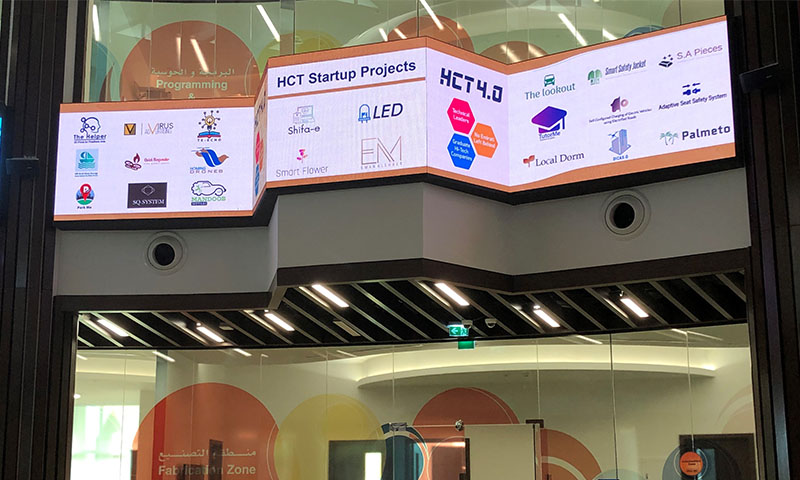
Success Story #4: Accreditation at the Core – International quality principles embedded, and recognitions achieved
HCT has an ongoing commitment to achieving international standards in the delivery of its applied programs. To ensure such standards are met, HCT has formed alliances with leading universities, educational associations, and professional accreditation bodies around the world to ensure its programs are at the cutting edge of technology and industry standards. The Commission of Academic Accreditation CAA is the Federal Government’s quality assurance agency charged with promoting educational excellence across diverse institutions of higher learning in the UAE. Before 2013, HCT was exempted from national accreditation requirements administered by the CAA, as was the case for all three federal universities in the UAE. In late 2013, HCT began its journey with CAA by applying for institutional licensure, resulting in a successful outcome. In 2016, HCT applied for program accreditation for all of its programs and became the first federal institution to achieve full national accreditation of all its applied programs within a record timeframe.
At the international level, HCT has become one of the first six higher education institutions in the world to receive accreditation from the Quality Assurance Agency (QAA), UK’s independent body, and a global leader in quality assurance for higher education. This global accreditation is awarded to institutions that have passed the QAA’s rigorous International Quality Review, an independent peer-review measuring global institutions against the European Standards and Guidelines. Besides, HCT has all its eligible programs internationally accredited by the Accreditation Board for Engineering and Technology – Engineering Technology Accreditation Commission, the Information System Technology Accreditation Commission, the Accreditation Council for Business Schools and Programs, and finally, the Health Information Management Association of Australia.
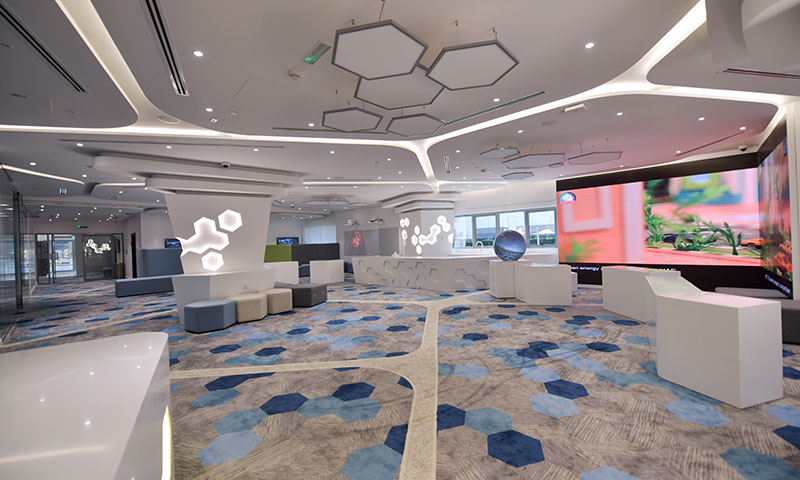
HCT has been awarded the prestigious CHEA International Quality Group’s Quality Award by the Council for Higher Education Accreditation (CHEA) at the 2020 CHEA-CIQG Conference in Washington DC, making it the first higher education institution in the Australasia, EU, and the MENA region to receive this award. With only three educational institutions selected worldwide to receive this award annually, HCT was recognized for meeting their international quality principles, described by the members of the award panel as excellent, inspiring, and innovation-driven. At the forefront of leading change, HCT has also been awarded the Leading Change Award at the Blackboard 2019 Catalyst Awards in recognition of its efforts in actively promoting widespread adoption of innovative strategies aimed at boosting learning outcomes and student success.
Success Story #5: Digi Campus Overnight – Instructional and Business Continuity amid COVID-19
HCT’s transition to online, distance learning during the COVID-19 pandemic has proven to be an overwhelming success with over 16,500 HCT students participating in a wide range of e-activities and programs through HCT’s Digi Campus. Of that figure, 14,300 students participated in 700 online activities, including life skills courses, e-competitions, sports and fitness classes, e-reading, and remote volunteer work. In comparison, 2,324 students participated in the employability program offered through the Digi Campus’s e-Employability Hub.
The Digi Campus initiative was launched in early 2018 to respond to developments of the fourth industrial revolution and develop and implement an innovative, transformative digital campus model. The global disruption ignited by the COVID-19 pandemic galvanized HCT to completely shift from in-person to online classes and online delivery of student services. At the start of the COVID-19 outbreak in March 2020, the whole institution was mobilized to ensure a seamless transition to the digital platforms. HCT’s readiness for business and instructional continuity was a result of orchestrating an ecosystem perspective on digital transformation, a forward-looking institutional strategy that has technology utilization as a central pillar, an education technology strategy, and a comprehensive set of intelligent learning tools.
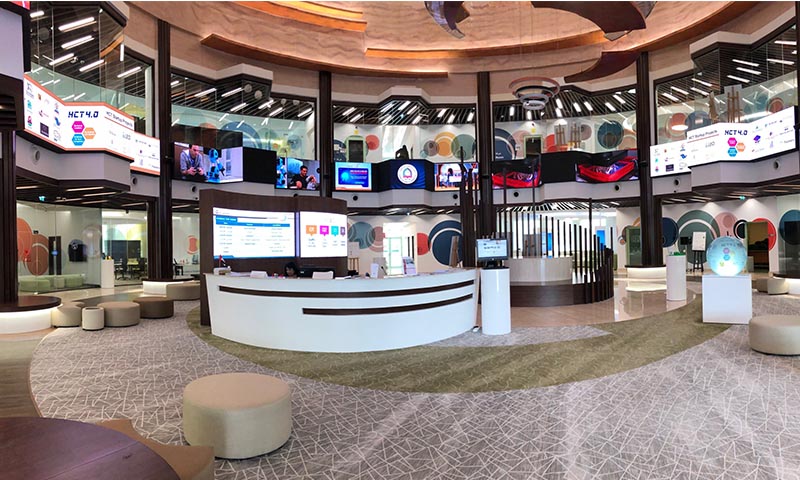
HCT delivered 234,000 learning hours through 61,000 online classes during the fully online delivery model and had over 21,000 hours of online professional development sourced from HCT’s Learning Management System. Over the same period, more than 1,900 employees were running the business as usual from home. Envisioning future scenarios and preparing the organization for them is a practice that should be deployed in parallel to business continuity. As such, HCT was amongst the first higher education institutions in the region to conduct a strategic foresight scenario planning exercise that investigated four scenarios for HCT considering two dimensions: (1) COVID-19 pandemic longevity and (2) the UAE economic and social resilience. An analysis of the opportunities and challenges of each of the resulting four scenarios was conducted, and a set of proactive strategies was devised and operationalized in preparation of the Academic Year 2020/2021.
A Vision for the Future
We see a future that demands resilience, innovation, proactivity, and agility. Like many other sectors, education has been significantly disrupted and will continue to transform throughout the entire ecosystem. At HCT, we were ready and well prepared for this disruption with early investments in educational technologies, human capital development, and strategic foresight capabilities. At the start of this academic year, we were amongst the first to announce our full deployment of the hybrid-in-space education model, an added dimension to our flagship Hybrid Education framework, where online and classroom teaching and learning are effortlessly integrated to deliver a fulfilling learning experience for our students. Depending on the applied nature of every course and specialization offered here at HCT, learning components are either delivered online, on-campus, or hybrid. Hybrid Education is not a remedial or transitional move, but rather a new revolutionary model that HCT is promoting to the world.
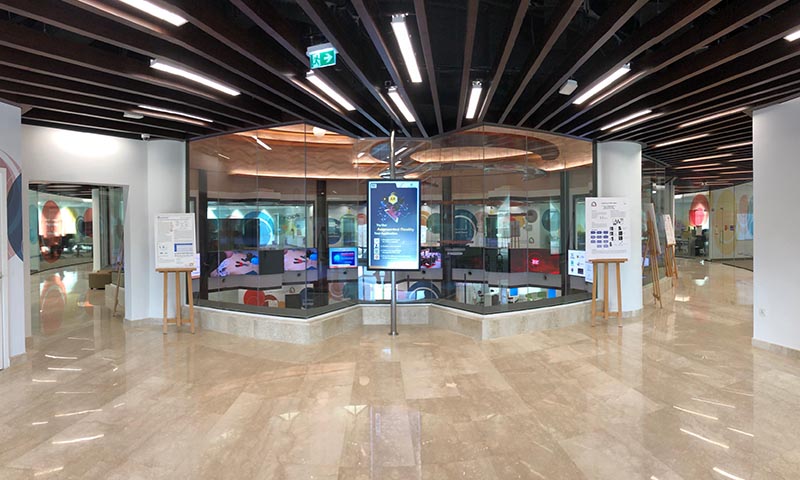
Our vision for the future of education is crystal clear. We envision a futuristic education system that will adopt four core strategies to build a human-centred learning ecosystem, focused on talent development and growth.
First, an ecosystem that provides means and tools for personalized learning experiences to develop talents and exploit human potential, the futuristic education system is one that recognizes that every human has a talent and, as such, requires personalized educational tools to best nurture and further develop such talent. The aim here is to develop each student’s independent learning capacity and capability to become lifelong learners.
Second, establish and maintain a credible digital badging and micro-credentialing system. The 4 to 5 yearlong credentials are no longer a feature of a futuristic education system but rather a micro or even nano credentialing system that is entirely driven by skills and competencies development. The strategy here is to establish a credentialing system that is on-demand and accessible at any stage of one’s career to upskill or reskill for better alignment with one’s career aspirations and potential moves.
Third, review programs and curricula and transform into skill-based to support economic sectors: The futuristic education system is one that operates in close partnership with industry and government to bridge the talent gap and win the talent war. Accordingly, this would entail that all offered programs and curricula are tailored to develop jobs’ skills requirements along the economic sector’s standardized career pathways.
Fourth, redesign campus space to enable applied learning: The current brick and mortar model of campuses will disappear in the futuristic education system. Campuses will be redesigned and re-engineered to facilitate applied learning in work simulated environments that are sector-specific and job-driven. Classrooms will disappear and be replaced by open workspaces to encourage social interaction and promote entrepreneurial activities.
At HCT, we are on a quest to realize this futuristic vision. We established our colleges as talent and skill incubators to deliver the national agenda. We will continue to do so, leveraging on our hybrid learning model and strategic partnerships, to recreating our campuses as immersive simulations of the world of work while sustaining a fulfilling learning journey for our students.
About Dr Ahmed Samy
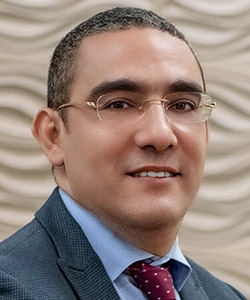
Dr Samy co-chaired the World Strategy Summit held in Abu Dhabi in 2015 and serves as the current Chairman of the Richard Goodman Strategic Planning Award. He holds professional credentials in strategic management, strategic foresight, project and change management, and Organizational Excellence. His doctorate is in business forecasting and holds two master degrees in business administration and software engineering from the USA.




